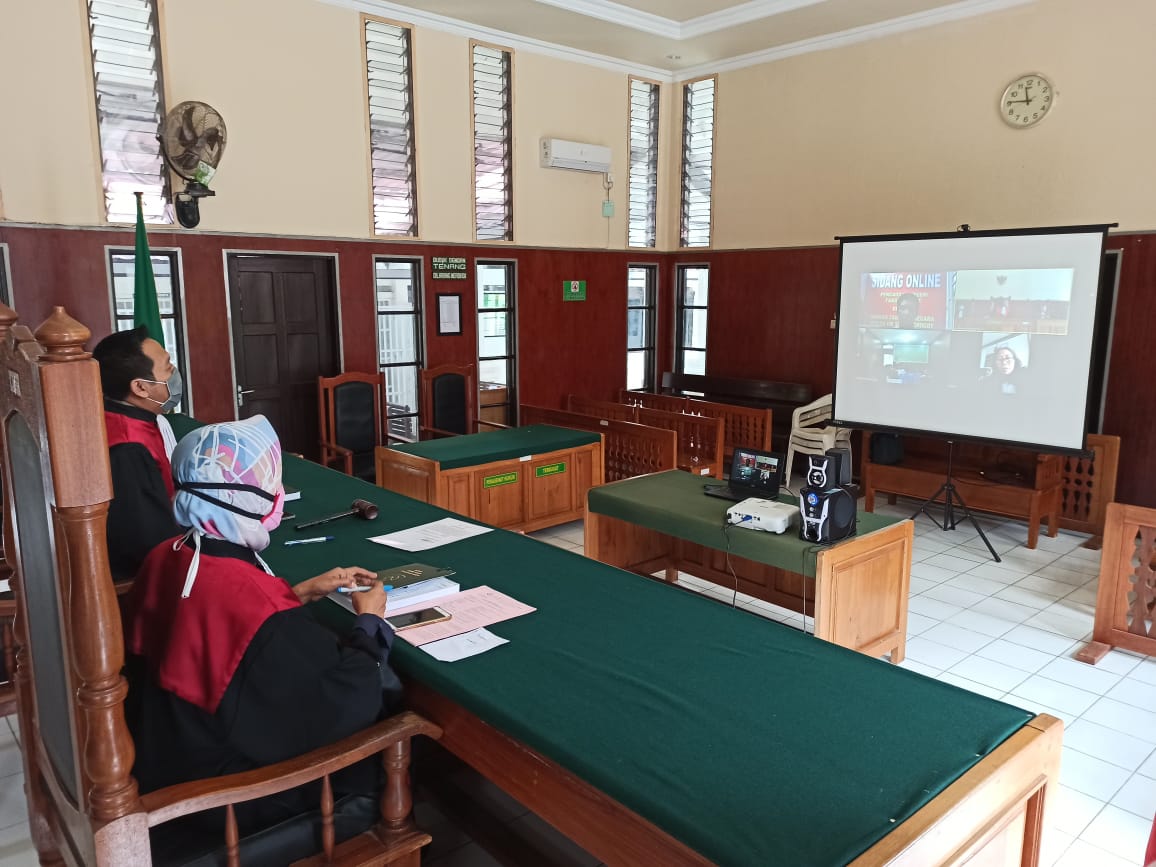Adoption of the Plea Bargaining Concept to Improve Judicial Efficiency During the Covid-19 Outbreak
Main Article Content
Abstract
Plea Bargaining can be interpreted as a statement of guilt from a suspect or defendant. Plea Bargaining is widely embraced in countries that adhere to the Common Law legal system. Plea Bargaining developed in the common law legal system has inspired the emergence of mediation in the practice of justice based on criminal law in the Netherlands and France, known as “transactieâ€. This paper is intended to analyze the concept of plea bargaining on improving judicial efficiency during the Covid-19 Pandemic in Indonesia. This research confirmed that plea Bargaining is categorized as an attempt to resolve outside the court and its users are also based on certain reasons. Whereas the presence of the concept of a special route is also a concern if we see that the defendant’s confession of guilt can be reinstated as the basis for a judge to issue a verdict. The purpose of this paper is to find out and analyze the application of plea bargaining in the midst of the global Covid-19 pandemic in Indonesia.
Article Details
All writings published in this journal are personal views of the authors and do not represent the views of this journal and the author's affiliated institutions. Author(s) are retain the copyrights of the Article. However, before publishing, it is required to obtain written confirmation from Author(s) in order to ensure the originality (Author Statement of Originality). The statement is to be signed by at least one of the authors who have obtained the assent of the co-author(s) where applicable.This work licensed under a Creative Commons Attribution-ShareAlike 4.0 International (CC BY-SA 4.0)
References
Atmasasmita, R. (2010). Sistem Peradilan Pidana Kontemporer. Jakarta: Binacipta.
Badinter, R. (2017). The assize court: Memories and issues. Les Cahiers de la Justice, 8(4), 569-573.
Badinter, R. (2019). Juger après Vichy. Histoire de la justice, 10(1), 7-10.
Crespo, A. M. (2018). The hidden law of plea bargaining. Columbia Law Review, 118(5), 1303-1424.
Eko Budi, S. (2018). Kebijakan Hukum terhadap Tindak Pidana Penangkapan Ikan Secara Ilegal di Perairan Indonesia. Jurnal Wajah Hukum, 2(2).
Glon, C., & Mikowski, A. (2020). Groupe d'avocats (droit pénal). Les Cahiers de la Justice, (3), 429-438.
Hall Jr, J. W. (1974). The Bounds of Prosecutorial Summation in Arkansas. Ark. L. Rev., 28, 55.
Hall Jr, J. W. (1976). Official Misconduct under the Arkansas Criminal Code. Ark. L. Rev., 30, 160.
Kurniawan, K. D., Hapsari, D. R. I., & Prasetya, I. E. (2021). Pemberlakukan Plea Bargaining System Sebagai Alternatif Penyelesaian Perkara Pidana untuk Tujuan Menyelesaikan Konflik. Jurnal Jurisprudence, 10(2), 183-199.
Langer, M. (2017). Dos transplantes jurÃdicos à s traduções jurÃdicas: a globalização do plea bargaining e a tese da americanização do processo penal. Delictae Revista de Estudos Interdisciplinares sobre o Delito, 2(3), 19-19.
Leturmy, L., & Bossan, J. (2019). La Comparution Sur Reconnaissance Préalable De Culpabilité (Doctoral dissertation, Mission de Recherche Droit et Justice).
Najih, M. (2014). Politik Hukum Pidana: Konspesi Pembaharuan Hukum Pidana dalam Cita Negara Hukum. Malang: Setara Press.
Nelson, F. M. (2019). Plea Bargaining dan Deferred Prosecution Agreement dalam Tindak Pidana Korupsi. Jakarta: Sinar Grafika.
Nelson, F. M., & Santoso, T. (2020). Plea Bargaining in Corruption Cases: A Solution for the Recovery of Financial Losses by Indonesia?. Pertanika Journal of Social Sciences & Humanities, 28(2).
Prasidi, D. (2019). “Plea-Bargaining: Sebiah Jalan Permisif Bagi Keadilanâ€, Online Article, retrieved from https://dimasprasidi.wordpress.com/2009/12/23/plea-bargaining-sebuah-jalan-permisif-bagi-keadilan/
Atmasasmita, R. (1996). Sistem Peradilan Pidana Perspektif Eksistensialisme dan Abolisionisme. Bandung: Binacipta.
Ruchoyah, R. (2020). Urgensi Plea Bargaining System dalam Pembaruan Sistem Peradilan Pidana di Indonesia: Studi Perbandingan Plea Bargaining System di Amerika Serikat. Jurnal Hukum IUS QUIA IUSTUM, 27(2), 388-409.
Sinaga, H. D. P., & Bolifaar, A. H. (2020, March). Blockchain Adoption for Plea Bargaining of Corporate Crime in Indonesia. In Proceedings of the 2020 The 2nd International Conference on Blockchain Technology (pp. 115-119).
Soubise, L. (2018). Guilty pleas in an inquisitorial setting–An empirical study of France. Journal of Law and Society, 45(3), 398-426.
Thaman, S. C., & Bachmaier, L. (2021). Attorney-Client Confidentiality as a Fair Trial Right in Criminal Proceedings. In General Reports of the XXth General Congress of the International Academy of Comparative Law-Rapports généraux du XXème Congrès général de l'Académie internationale de droit comparé (pp. 589-610). Springer, Cham.
Tongat, T. (2010). Hukum Pidana Indonesia: dalam Prespektif Pembaharuan. Malang: UMM Press.
Vergine, F. (2019). Il patteggiamento: gli obblighi restitutori depotenziano le finalità deflattive. Processo penale e giustizia, 18(2), 443-449.
Wignjosoebroto, S. (2012). Hukum Tak Kunjung Tegak: Apa yang Salah dengan Kerja Penegakan Hukum di Negeri ini? Dalam Dialektika Pembaruan Sistem Hukum Indonesia. Jakarta: Sekretariat Jenderal Komisi Yudisial Republik Indonesia.
Wilford, M. M., Wells, G. L., & Frazier, A. (2021). Plea-bargaining law: The impact of innocence, trial penalty, and conviction probability on plea outcomes. American Journal of Criminal Justice, 46(3), 554-575.
Zimring, F. E., & Frase, R. S. (1980). The Criminal Justice System: Materials on the Administration and Reform of the Criminal Law. Boston: Little, Brown.
